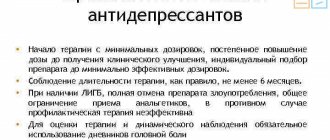Frequent illnesses and stress can reduce the quality of life, affecting overall health and causing insomnia. Prescribing Phenibut tablets for sleep will help to have a strengthening effect on the body and eliminate the causes of excessive anxiety and depression. In addition to relieving anxiety and unreasonable fear that accompany insomnia, this drug also helps increase concentration, improve mental performance and memory.
Share
Tweet
Share
Cool
Send
Medicinal properties of the medicine
As a sleeping pill, Phenibut belongs to the group of nootropics and has a pronounced sedative effect, which explains its widespread use for restoring sleep. The basis of the drug is gamma-amino-beta-phenylbutyric acid hydrochloride. One tablet contains up to 250 mg of active substance. The medicine is available in tablet form.
According to the properties of the main component, Phenibut has proven effectiveness in the following pathological conditions:
- insomnia, night restlessness;
- decreased emotional and intellectual activity, impaired memory and concentration;
- asthenic states accompanied by fears, panic attacks, phobias;
- to prevent stress before surgical interventions or painful diagnostic procedures;
- when interacting with detoxification agents - for the treatment of alcoholic predelirium and delirium syndromes;
- Meniere's disease, dizziness associated with dysfunction of the vestibular apparatus of a traumatic, vascular or infectious nature;
- to prevent motion sickness during kinetosis;
- in the treatment of women with osteochondrosis of the cervicothoracic spine and menopausal disorders;
- stuttering, tics or enuresis - in childhood.
IMPORTANT! Phenibut has a complex effect on the human body, providing tranquilizing (sedative), psychostimulating, antioxidant, antihypoxic and antiamnestic effects.
As the most effective sleeping pill, Phenibut improves sleep quality through the following actions:
- relieves tension and feelings of chronic fatigue;
- eliminates insomnia: speeds up the process of falling asleep and reduces the frequency of night awakenings;
- improves blood circulation to the brain.
The medicinal properties of the drug also include:
- eliminating anxiety, combating fears and phobias;
- correction of movement and speech defects;
- improving the speed of reactions, helping the patient to adequately assess the situation and quickly find solutions to any problems;
- relief of attacks of vegetative-vascular dystonia;
- activation of working capacity, memory and attention;
- reducing the negative impact of narcotic and alcoholic substances on the patient’s body, effective assistance in eliminating withdrawal symptoms.
Is there addiction?
Dependence is classified into psychological and physical. The drug is not capable of causing addiction, since it is not a narcotic substance, but this is subject to strict adherence to the doctor’s recommendations.
You can take it only in the quantity prescribed in the instructions; then it does not pose anything dangerous to the body. Therefore, it is important to clarify in advance how many tablets you can take per day and what the effect will be.
It is important to remember that long-term use of the component for six weeks or its combination with narcotic substances can negatively affect the body and cause the opposite effect.
For example, using cannabis in combination with Phenibut can cause it to become addictive to a euphoric state. Marijuana has the same effect. In this case, drug treatment will be required.
There is also known withdrawal syndrome of the component – phenibut; it occurs during prolonged therapy and the absence of additional comprehensive measures to get rid of panic attacks and restore the nervous system.
The enzyme is canceled in a gradual form by reducing the amount of it entering the body. This is required to resume the production of the component that was replaced by the drug.
Causes of insomnia
Sleep disturbances are both permanent and temporary. The severity of the disruption of biorhythms will directly depend on pathological changes in the emotional sphere. Constant stress, nervousness, and anxiety lead to sleep disturbances in the chronic phase.
Insomnia (insomnia) is often diagnosed in the following cases:
- lack of basic conditions for normal sleep: required temperature conditions, ergonomic furniture;
- anxiety and restlessness;
- pathologies of the nervous system of organic and mental nature;
- sudden changes in daily routine: nutrition, biorhythms, behavior;
- the presence of chronic or acute diseases requiring long-term treatment;
- enuresis.
The speed of falling asleep and the quality of sleep are also affected by breathing problems, expressed by snoring, pregnancy and certain diseases (arthritis, leukemia).
Other factors such as old age and genetic predisposition can also cause insomnia. Certain medications (antidepressants, monoamine oxidase inhibitors), chocolate, coffee, Coca-Cola also have a stimulating effect on the nervous system, causing insomnia.
Lack of sleep prevents the body from getting proper rest, reduces its physical strength, making it vulnerable to any infections, viruses and other external influences. A qualified prescription of Phenibut will help correct this condition and restore healthy sleep.
What is phenibut and how does it affect the body?
The history of phenibut is interesting. It was invented at the Leningrad Research Institute of Psychoneurology named after. Bekhterev. Among the first people to receive it were the cosmonauts of the 1975 Soyuz-Apollo international crew. The drug had a relaxing and calming effect, without reducing ability to work.
According to the chemical structure, phenibut is a derivative of 2 components:
- Gamma-aminobutyric acid, which has an inhibitory effect on nervous processes;
- Phenylethylamine, which has a psychedelic (stimulating) effect on neurons and the connections between them.
A certain ratio of phenibut components simultaneously helps eliminate excessive anxiety , stressful situations, fears and obsessions, on the other hand, activate nervous processes, improve thinking, memory, normalize speech when stuttering, eliminate depressive and asthenic conditions, and neuroses.
Phenylethylamine has a nootropic effect on the brain - it stimulates higher psychophysiological processes in the brain, ultimately improving cognitive functions, thinking abilities, memorization, and eliminating dizziness.
Indications for prescribing phenibut are various neuropsychic disorders , the effects of stress, neurotic conditions, sleep disorders, stuttering, memory loss due to psycho-emotional trauma. It is successfully used in drug treatment practice for the treatment of alcohol and drug addiction.
Further in the article, you will learn how long adults can take Phenibut, whether it is addictive, what the normal dosage is, and what to do to quickly and painlessly stop taking the medication.
Who is not recommended to take the drug?
A strict prohibition on taking Phenibut for insomnia is individual intolerance and the presence of any allergic reactions to the components of the drug.
Tablets are prescribed with caution for the following diseases in history:
- chronic or acute pathologies of the gastrointestinal tract;
- kidney or liver dysfunction.
While taking Phenibut, it is necessary to systematically monitor blood morphology, as well as conduct studies of liver function indicators.
Contraindications to the use of Phenibut are also:
- pregnancy;
- breastfeeding period;
- children up to 8 years old.
Indications for use
Treatment of depression with Phenibut is quite reasonable, given the indications for use of this medicine:
- Asthenic syndrome, manifested by increased fatigue and chronic fatigue syndrome, decreased performance in physical and mental terms.
- Neurotic conditions accompanied by anxiety and unreasonable fears.
- Obsessive-compulsive disorder (a person who is overcome by anxious thoughts that he cannot get rid of).
- Psychopathy is an innate personality trait that is based on disharmony, imbalance or instability of mental processes.
- Sleep disturbances and nightmares in elderly patients.
- Prevention of increased anxiety, which can occur before surgical interventions and painful diagnostics.
- Meniere's disease is a non-inflammatory disorder of the inner ear that causes attacks of spinning vertigo (when the room feels like it's spinning around), tinnitus, and hearing loss.
Psychotherapists quite often prescribe Phenibut for anxiety and depression. Phenibut is not a very heavy drug, but it is also not as light as Valerian tincture that you can start taking it on your own without consulting a doctor.
Symptoms of depression
When interviewing a patient, a psychotherapist may identify the following criteria for depression:
- depression;
- anxiety;
- constant fatigue and desire to rest;
- apathy, lack of interest;
- neuroses and painful sensitivity of the eyes to light;
- decreased libido;
- reluctance to take care of yourself (personal hygiene suffers) and perform daily duties.
These symptoms usually occur early in depression. If they last for a long time, mania may appear. If the patient suspects symptoms of depression, then the condition cannot be neglected and an urgent need to seek medical help.
Side effects, compatibility with alcohol and other drugs
When taken in adequate therapeutically justified doses, Phenibut is well tolerated without causing side effects. A common undesirable effect characteristic of starting therapy or accompanying cases of overdose is severe drowsiness and headache, which disappear as the dose of the drug is normalized. Long-term therapy provokes the opposite effect, activating negative psycho-emotional states in the form of increased anxiety, worry, and fear.
If there is intolerance to the components of the drug, allergic reactions are observed in the form of itching, rash, burning, urticaria or other skin pathologies.
In rare cases, side effects of Phenibut therapy are observed in the form of:
- from the nervous system: at the beginning of treatment - drowsiness, with large doses - dizziness and headache, the severity of which decreases with decreasing dose of the drug;
- from the gastrointestinal tract: nausea, vomiting, diarrhea, epigastric pain;
- from the immune system: allergic dermatological reactions;
- from the hepatobiliary system: hepatotoxicity;
- from the psycho-emotional state: emotional lability, sleep disturbances, irritability, increased anxiety, depression.
It is not recommended to drink alcohol during Phenibut therapy. Long-term use of the drug, accompanied by systematic consumption of alcoholic beverages, can cause, if the pills are discontinued, negative symptoms of withdrawal syndrome, which is characterized by increased phobias, anxiety, fear and other psycho-emotional pathological conditions.
IMPORTANT! The simultaneous use of Phenibut and drugs with similar hypnotic, anticonvulsant and sedative effects can cause an increase in the therapeutic effect. Mandatory correction of the regimen and selection of the correct dosage by the doctor is necessary.
More details about the product
This medication is a tranquilizer that activates the nervous system. Its action includes improving the transmission of impulses through specialized molecules - GABA receptors.
It helps improve blood circulation in the brain tissue, increasing blood flow through the vessels. It also reduces the level of platelet fixation, which has a positive effect on blood circulation.
It can be used as an antidepressant, since thanks to this effect it reduces nervous tension and eliminates symptoms of anxiety. Axiolytic stimulates brain activity; this drug helps to increase the level of productivity of mental activity.
Some use phenibut as a sleeping pill; it has a beneficial effect on the nervous system and improves sleep.
The components of the drug increase human performance by influencing the receptors responsible for adrenaline and choline.
It is important to understand that you can only take phenibut from a certain age; it is dangerous for children. However, it is impossible to prescribe it independently; prior consultation with a specialist is required.
How to take Phenibut for insomnia?
Phenibut tablets are somewhat aggressive for the gastric mucosa, so they should be taken after meals, accompanied by a sufficient amount of water.
Taking Phenibut once at night will not have the desired effect. To achieve lasting results of improved sleep, undergo a course of drug therapy. The first improvements were noted after 10-14 days of systematic use of the medicine.
The standard treatment regimen involves taking Phenibut three times a day, 1 tablet, for a course of 1 to 1.5 months. If necessary, the doctor will increase the dose of Phenibut before bedtime or prescribe 2 tablets three times a day. Such adjustments are made by a qualified physician and require constant monitoring of the patient’s general condition and blood and liver function parameters.
Uncontrolled use of the drug, the use of increased doses provokes symptoms of overdose, the appearance of dependence or withdrawal syndrome.
Action
Phenibut (aminophenylbutyric acid) can safely be called a fast-acting substance, since after consuming the tablet, half an hour or 60 minutes is enough for an effect to appear that lasts at least 5 or 6 hours. Among its properties:
- calming effect without muscle relaxation;
- rapid elimination of anxiety and fears;
- improved sleep;
- stabilization of blood circulation.
The drug Phenibut is often used in combination with other drugs to treat pathological conditions that are accompanied by changes in the emotional component, including in the presence of addiction to alcohol or drugs, since it is able to reduce blood pressure and relieve seizures. However, it has been proven that the drug can significantly enhance the effect of sleeping pills and narcotic substances.
In narcology, Phenibut is not considered a drug (unlike Lyrica), since its use does not create such a strong dependence as in the case of drug use. However, such an effect is present; accordingly, the drug should be prescribed exclusively by the attending physician.
However, a long course of Phenibut for six or more weeks can provoke the development of withdrawal syndrome. We are talking about the appearance of quite unpleasant symptoms when you stop using the product. The patient's well-being may deteriorate significantly.
The same danger awaits the patient in the event of an unauthorized increase in the dose of Phenibut - the problems that the drug is supposed to eliminate will become worse. There are two strict rules that will allow you not to become dependent on the drug and quite easily overcome the stage of withdrawal syndrome:
- The duration of the therapeutic course using Phenibut is usually 24 days, while an adult patient can take 500-1500 mg of the drug per day, that is, 1-2 tablets in the morning, afternoon and evening.
- Cancellation of the course of treatment is carried out gradually, reducing the dose over a period of one to two weeks - this way the body will be able to adapt to the new regime without the presence of Phenibut without damage, independently producing substances previously obtained from pills.
Even taking into account the fact that Phenibut is not a narcotic or psychotropic substance, if you abruptly stop taking it, you may want to continue taking it. When the medication is used simultaneously with a drug, the effect of the latter is significantly enhanced, and the level of high when using such cocktails increases. This is why the simultaneous use of Phenibut and narcotic substances is often used.
Withdrawal syndrome manifests itself in medium intensity, affecting both the physical and mental components of a person. Long-term treatment can lead to the development of withdrawal syndrome. Symptoms of addiction appear after 4 or 6 weeks - this is how long Phenibut can be taken safely. The duration of withdrawal symptoms depends on several factors - the dose, the general condition of the person and the duration of use. Signs of withdrawal from Phenibut include:
- Chills;
- General weakness;
- Problems with thermoregulation;
- Depressive states;
- The desire to take the drug again.
Despite the fact that medicine officially denies the narcotic effect of the drug, if used incorrectly, the drug can be called a pharmaceutical drug.
To understand exactly how Phenibut rushes, it is enough to ignore the established rules of use, exceed the dosage and set the frequency of use at will. Interestingly, it is impossible to achieve a state of euphoria similar to that obtained when using the same cannabis. It is much more likely to get a powerful rebound and increase in negative manifestations, for the elimination of which Phenibut is prescribed.
You can experience severe drowsiness, migraines, dizziness, a rapid decrease in blood pressure, rapid heartbeat, deterioration of the thought process and a feeling of depression. Indifference to the outside world and apathy may appear, followed by irritability, anxiety and panic. Nausea with vomiting attacks and allergies are possible.
Analogues of the drug
Based on the main active ingredient, Phenibut analogues are:
- Noobut;
- Aminalon;
- Bifren;
- Quatrex;
- Noomax;
- Noofen;
- Gamalate B6;
- Anvifen;
- Fenubit-Anvi;
- Olatropil.
In terms of calming and hypnotic effects, the best analogues of Phenibut are Tenoten, Adaptol, etc.











